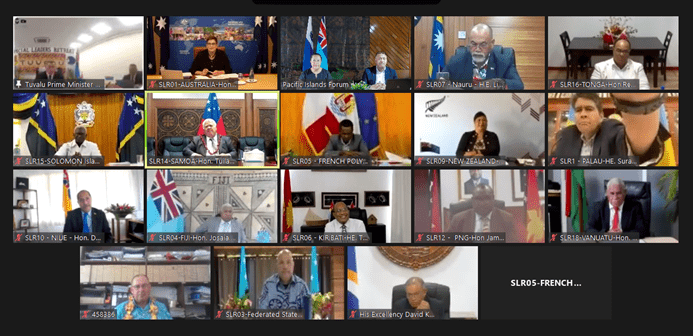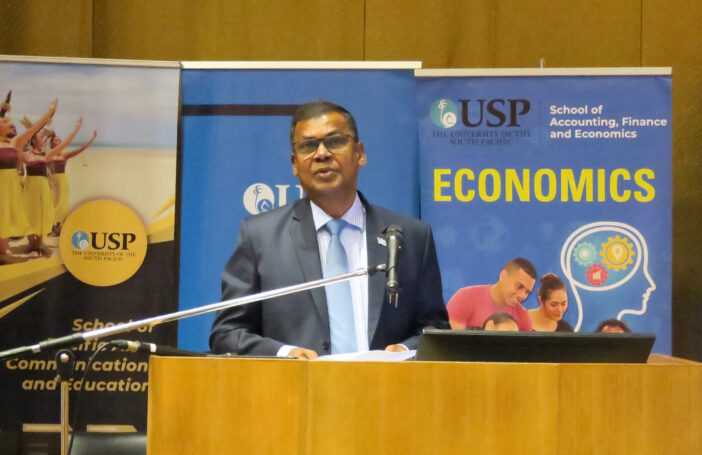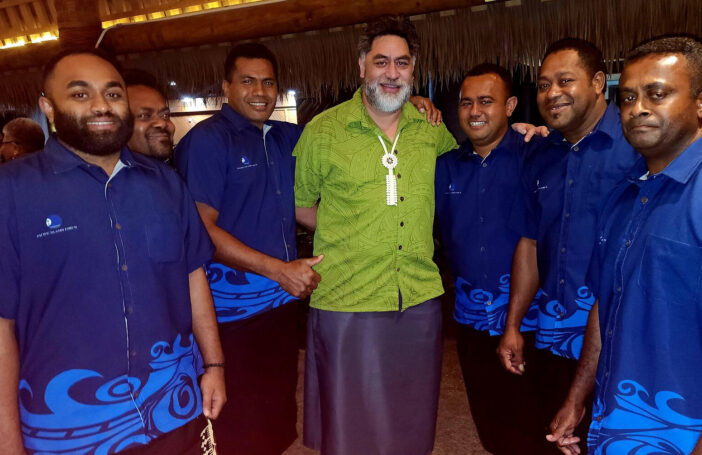In recent days, the crises at the University of the Pacific (USP) and the Pacific Islands Forum (PIF) have seriously eroded the fragile bonds that hold the dream of Pacific regionalism and solidarity together.
USP is often portrayed as a shining example of Pacific regionalism. Established in 1968, it has enabled many Pacific islands citizens to obtain affordable tertiary education that would otherwise not be within reach in the Small Islands Developing States (SIDS) of the region. Many of the leaders and senior officials in the region have been educated at USP. It is the premier institution with specialised knowledge of the Pacific region, its people and cultures. USP has also supported the development of national universities and pioneered distance learning opportunities throughout the region.
Like many Pacific institutions, USP has had its share of challenges. The most critical of these challenges relate to the recent expulsion of the Vice Chancellor by a member state without the approval of the governing USP Council. The decision not only undermines the authority of the USP Council but completely disregards the human rights of the VC and his family. Above all, there has been little respect shown to fellow island members on the Council. The credibility of USP has been seriously eroded and its viability is now in question. Why would any student want to study at USP? Why would any academic want to work there? It is doubtful if USP can be salvaged without major reforms.
At about the same time, the Pacific Islands Forum (PIF) voted in former Prime Minister Henry Puna of Cook Islands as the new Secretary General of the Forum. This decision by regional leaders went against the expectations of Micronesian leaders that their nominee, Gerald Zackios, would be selected given the usual practice of rotating the SG appointment between the subregions. By convention, this would be Micronesia’s ‘turn’. As a result, Micronesian leaders have threatened to withdraw from the PIF.
The future of PIF as it stands is under threat and time will tell if the Micronesian members leave as a group. Regardless of the decision of the Micronesian leaders, the PIF needs to review the way the Secretary General is chosen and the way the organisation operates. The ‘gentlemen’s agreement’ for electing the SG was an unwritten understanding and open to different interpretations. It is important that an open and transparent process is agreed to by all members for future selections.
On the surface, these two events appear separate and unrelated, but the crises at USP and the PIF are similar in many respects. On the surface, regionalism has been the primary focus of Pacific nations and regional institutions, and a key objective of the PIF for many years. Yet, despite the rhetoric, regionalism has been more of a marriage of convenience rather than a truly shared objective. Commitments have always been fragile and conditional, and the needs of individual member states always take precedent over the needs of the region. SIDS are concerned about their potential loss of sovereignty and the undue influence of the larger members. Trust has been seriously eroded and it is unlikely that either institution (and possibly other regional agencies) can survive in their current form.
It is highly likely that sub-regional groups will gain increasing influence under any new arrangement. The Polynesian Leaders Group, the Melanesian Spearhead Group and the Micronesian Presidents Summit already have several activities underway within their sub-regions. For example, in Polynesia, the Manatua undersea cable linking French Polynesia, Cook Islands, Samoa and Niue is well underway. Advanced discussions on Polynesian air links have also taken place. The crises at USP and the PIF may well be the catalyst for further advancing the development of sub-regional agendas and relationships.
New arrangements would permit new relationships to emerge while recognising different cultures, political arrangements, economic circumstances, transport and trade links. For example, tertiary students from the New Zealand realm nations of Cook Islands, Niue and Tokelau may be better served by attending universities in New Zealand and ceasing membership of USP. Savings in USP member fees may be better used to support their languages, which are under threat. Polynesian nations may wish to support selected initiatives that promote Polynesian cultures, economies and communities rather than committing to membership dues to several regional organisations for which the benefits are uncertain. Returning tertiary education opportunities for realm nations back into New Zealand may be seen as a form of neocolonialism, but it would be a stable and quality option in the midst of ongoing instability at USP.
The Pacific region needs a strong and compelling voice for advancing shared challenges such as the climate crisis and combating global pandemics at the international level. A strong and compelling voice at the global level is essential, but it may be that it is time to revisit arrangements within the region so that all members feel valued and respected regardless of their size. This will require Pacific nations to review and develop new and different options that best meet their needs.





I have always thought we need to review Regionalism in the Pacific with the following inquiry in mind:
1. Do we need regionalism?
2. If we need regionalism, what should be the goals for such association? How do these goals related to SDG priorities of member states. We already have issue based regional bodies dealing with environment, fisheries, socio-economic developments/security & law and Order/ human resource development etc What exactly is PIFS for and is the cost justified?
3. The PICs need ANZ but is there a better way to reflect their engagement then as presently the case. Palau and FSM implied in their recent comments that Australia’s influence in the recent appointment of the SG of PIFS was not good. As donor and members of PIFS there may be conflict issues and contrary policy issues in areas such climate change with PICs.
4. On staffing, merit based is always best. No job for the boys/girls. Even if we agree to have sub-regional rotation the person from the sub-region whose turn it is to select must undergo, an open merit based system from nationals within that subregion.
4. The origin of PIFS suggests that it was need to remove the unnecessary overreach of the colonial masters. Maybe that is now taking place again.
5. People Conveniently the forget that understanding that Micronesia build its case on is one of three understanding. Two others are: Australia and NZ not to be eligible for SG appointment. That was broken when Australia pushed for the appointment of Mr Greg Urwin to be SG of PIFS. Not one PICs raised any objection when that happened. The second understanding is that Fiji as host of the organization will not be eligible to submit candidate for SG.
But as Colin observed in his comment it is time for more transparency and formal rules to cover these issues.
Hi Colin,
Interesting read. Just wondering how would the dynamics of aid to the Pacific change amid this ongoing crisis(Micronesia has pulledout of the PIF). The Pacific did not reach some of it’s MDG target’s(for example, WatSan). Would diversion to subregional managed Secretariat’s be better suited for Pacific development/SDG target attainment for the region?
Well said and expressed Sir, as our Pacific way of brotherhood , respect and treating one another with dignity seems to be evaporating very quickly. Hope that good sense will prevail to stabilize the excellent governance that USP used to practise & enjoy in previous years.